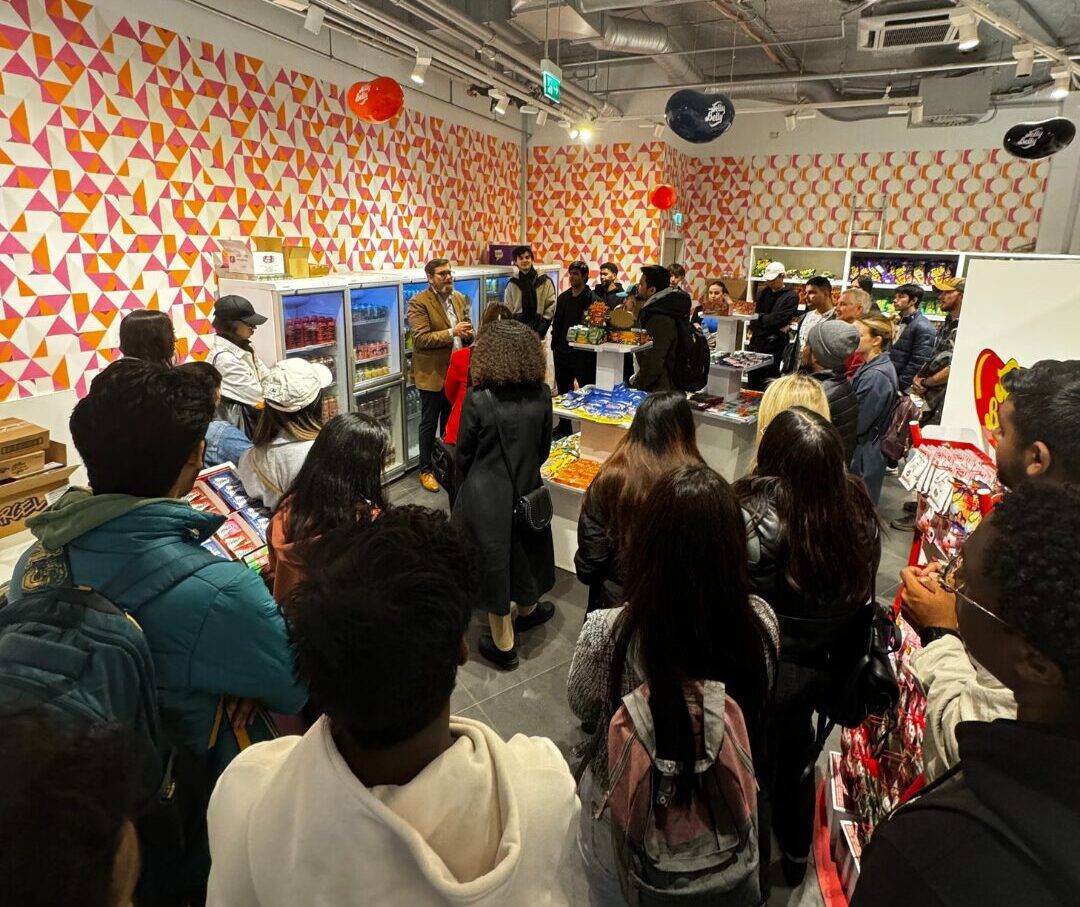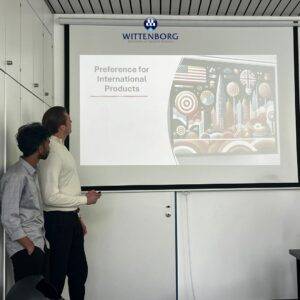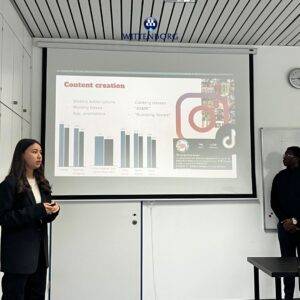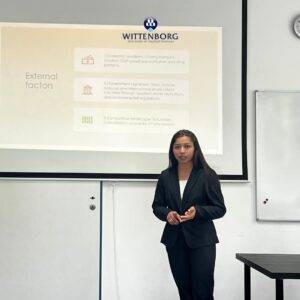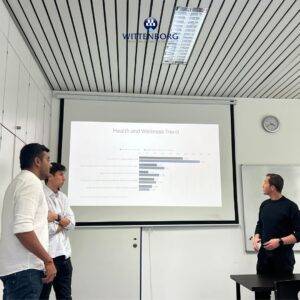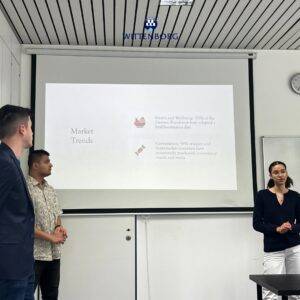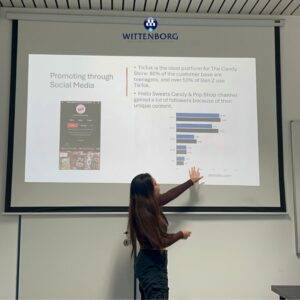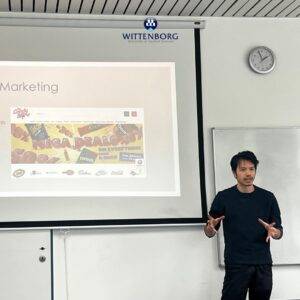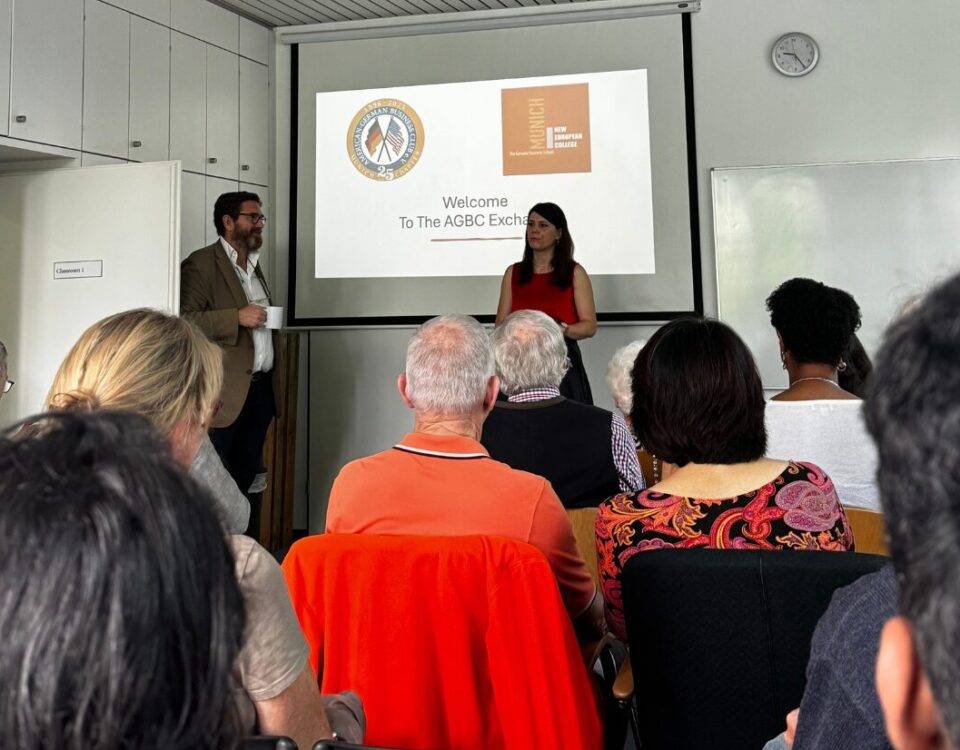
Project Week: Business Case Study – FairFleet and the Drone Industry
27. March 2024
Update from the Chancellor: Confusion, Love and Heroes
8. May 2024Context
Does NO ONE want to buy candies anymore?
As a matter of fact the answer is NO! Regardless of what people believe, the candy and snack industry keeps increasing and the market keeps expanding. According to the Harris Poll done by a survey of 3,000+ people across 12 countries has revealed that 60% of them would replace a meal with snacks daily, and 68% can’t imagine a day without a sweet treat. In 2024, Confectionery & Snacks market revenue hits US$1.77 trillion, projected to grow annually by 5.83% till 2028. Additionally the market volume is expected to amount to 233.50bn kg by 2028. The Confectionery & Snacks market is expected to show a volume growth of 3.5% in 2025. Nevertheless, the sales of The Candy Store (company that was consulted during this PW) are decreasing, so the purpose of this project week was to evaluate the external and internal factors surrounding the store and how to leverage all the insights and convert them into higher sales. This block students solved a real-life business case about a Small and Medium Enterprise (SME) that literally is a candy store in the online and offline world.
History behind the store
In 2017, Simon Zika was a happy student at New European College when together with a friend he stumbled on a business idea – opening a retail store that specialized on candy, salty snacks, cereals, and drinks from the United States of America and the United Kingdom. With a bit of research, they found a supplier that imported many of the desired products to Europe and after a bit of negotiation they had secured the Candy Store supply chain. Now all they needed was a location for their store and someone that assists them in navigating the complicated waters of German business bureaucracy.
With a bit of luck, they found a store not far from the central station in Munich. Not the best location, but relatively cheap for their young business and a great opportunity to learn and master the troubles of entrepreneurship.
Business was going but it was not running. Some days business was good, and on some days the only one that entered the Candy Store was the postman that brought new invoices. Simon was working hard and with time learned to balance the administrative work, the HR work, the supply chain, the customers, and his academic work. Thanks to his resilience and the assistance of George, a friend he met at NEC and who joined him after his initial partner had left the company, they ensured that The Candy Store not only survived Covid but also established a good online presence. After years of hard work, The Candy Store had relocated to the city center to one of Munich’s busiest subway stations (Stachus), a good but expensive location, and in 2023 the Candy Store was for the first time profitable.
Purpose of the project
The core of the assignment was to use the provided market research data, location analysis, retail space evaluation, and product offering to consult the owner of ‘The Candy Store’ and recommend a short and precise strategic and operational marketing plan.
It was our students’ responsibility, as their consultants, to revive the fire by providing them with a strategic and operational marketing plan based on the market research data provided and their own research.
Evaluation Process
1. Depth and Quality of Research
2. Critical Analysis and Insight
3. Clarity and Structure
4. Application of Theoretical Concepts
5. Originality and Creativity
6. Pitch Presentation
7. Presentation
The Academic Challenge – Adapt the store to the new market trends
Authors: Domenica Delgado, Sascha Liebhardt

